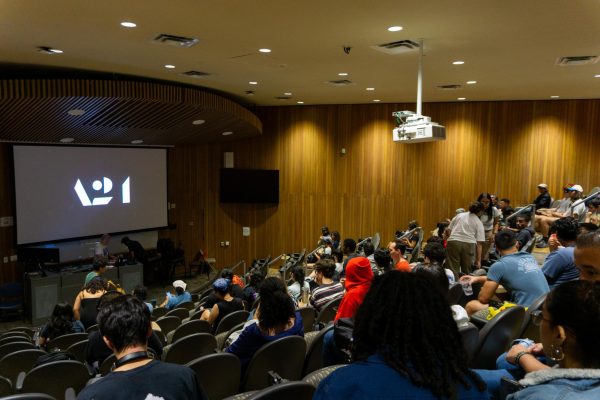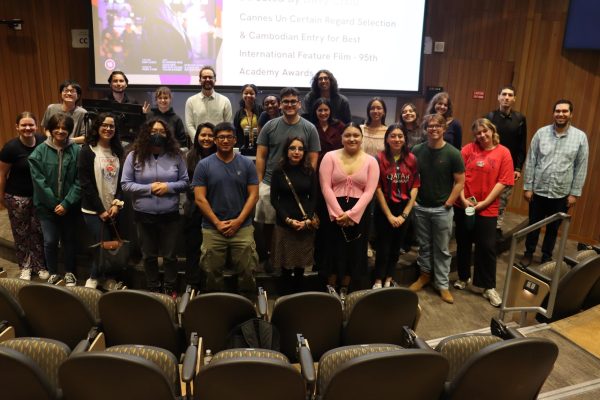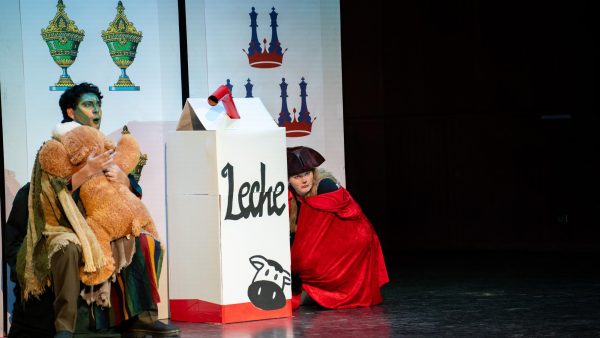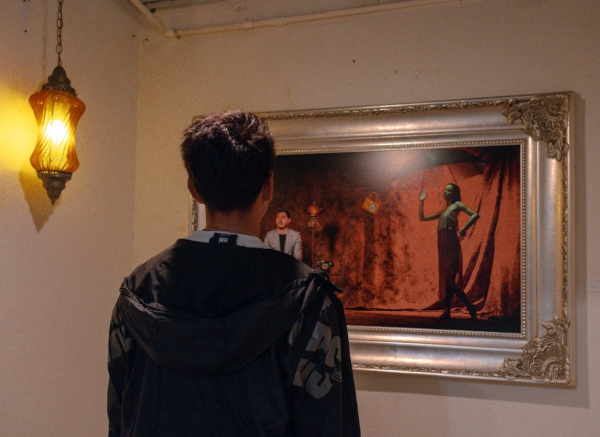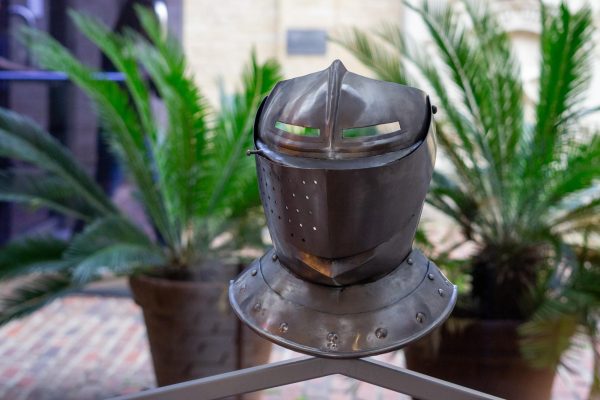Rowdy Thespian Association performs ‘Connected’
November 22, 2022
This weekend, the Rowdy Thespian Association performed a play titled “Connected,” written by Lia Romeo. It was a relatively small production, but the eight weeks of work that went into its development resulted in a strong performance with an impactful message: While social media has grown in popularity, loneliness has become a more significant problem than ever.
The play opens on a teenage girl, Megan, sobbing in her mother’s arms. The scene changes to show her giving an eager prom proposal to a boy the day before, drawing inspiration from a magazine’s claim that stripteases are the best way to catch a boy’s attention; however, the boy rejects her and his friend catches the proposal on video. Her mother discovers that night that the video is now viral on YouTube, launching Megan into notoriety overnight. Megan gives an interview on a news show. She has thousands of followers on social media, and many consider her an inspiration for her forwardness. A boy who was crushing on her for quite a while before she gained fame, Jeremy, seeks her out, intending to ask her to prom. Instead, they hash out the intense emotions she feels regarding her fame. He brings up the topic of prom and she confesses that Justin Bieber wants to attend with her. While preparing for the prom, Megan and her mother have a difficult conversation where Megan lays out her feelings about her status, frustrated that while she now has so much attention, she does not have real friends. This feeling becomes more intense at the prom, where Bieber chooses to spend his time with fans instead of her, leaving her to sit alone in a corner. Jeremy finds her, and they have another long, genuine conversation which ends in him asking her to dance when she is called up on stage. She agrees.
The scene transitions to a living room strewn with bottles and beer cups. A pair of scantily-dressed girls, Jill and Sarah, proclaim that the party they are at sucks and look on their social media to find that the cool kids are at a different one. They post a posed picture to make the one they are at seem cooler, then leave to join the cool kids. They waste their evening trying to chase the crowd and eventually return to the first party to find it already finished. Only one boy is left, and while Sarah passes out on the floor, he and Jill have a long conversation about the shallow friendship social media offers versus the deep friendships that exist outside of it. Jill is on her phone through most of the conversation. It is only when she puts her phone down that she and the boy talk about their complicated family lives and truly relate to one another. When morning comes, however, Jill decides that Sam does not fit into the standards of the people she hangs out with, and she returns to her lifestyle of trying to fit in with the cool crowd.
The third scene follows a teenage girl, Sharon, who is addicted to online video games. She finds she has a connection with one of the other players but lies about her age. The scene transitions to an interview for a job. It goes well, but Sharon turns it down because it would require her to work evenings, preventing her from playing the game with her friends. When she next enters the game, the player she previously connected with invites her out on a date. He is an adult out of college, and he has a mature view of meeting in real life — whether they will work together or they will not, and either way it is worth a try. Sharon reluctantly agrees, even though she previously lied. The meeting does not go well, as her date finds out almost immediately about the lies. When Sharon goes home, she confides in her brother that she plays the game because she likes who she is while playing better than in real life. She tells him that she might someday move on, but for now, she will do what makes her happiest and continue playing.
In the final scene, a pair of students catfish their teacher on Tinder. The teacher waits for her date to come and cries when she realizes the man is not coming, and before she leaves she spots the two boys. During office hours the next day, one of the boys, Jared, asks about a test question. He is unable to summon the courage to apologize and awkwardly leaves. The following day he comes to ask another question, then apologizes and explains his actions. He comes in one more time after that with cookies as a peace offering, and he and his teacher have a long talk about loneliness. The teacher explains her feelings by pointing out that there are no shortcuts to human bonds. It takes a long time to form a connection with another person, and though it seems easier now than ever before to make new friends, it is actually much harder to find anything meaningful. “Maybe we are lonelier now than we’ve ever been before,” she says. When Jared assures her that someone out there will love her and she should keep trying to find him, she says, “Yes, I’m going to keep trying.”
I believe this is what we should take away from “Connected.” While change does not happen over the course of one scene or one conversation, and loneliness can seem inescapable, we should always keep trying.
“Connected” was performed at 7 p.m. on Friday, Nov. 18 and at 2 and 6 p.m. on Saturday, Nov. 19.







